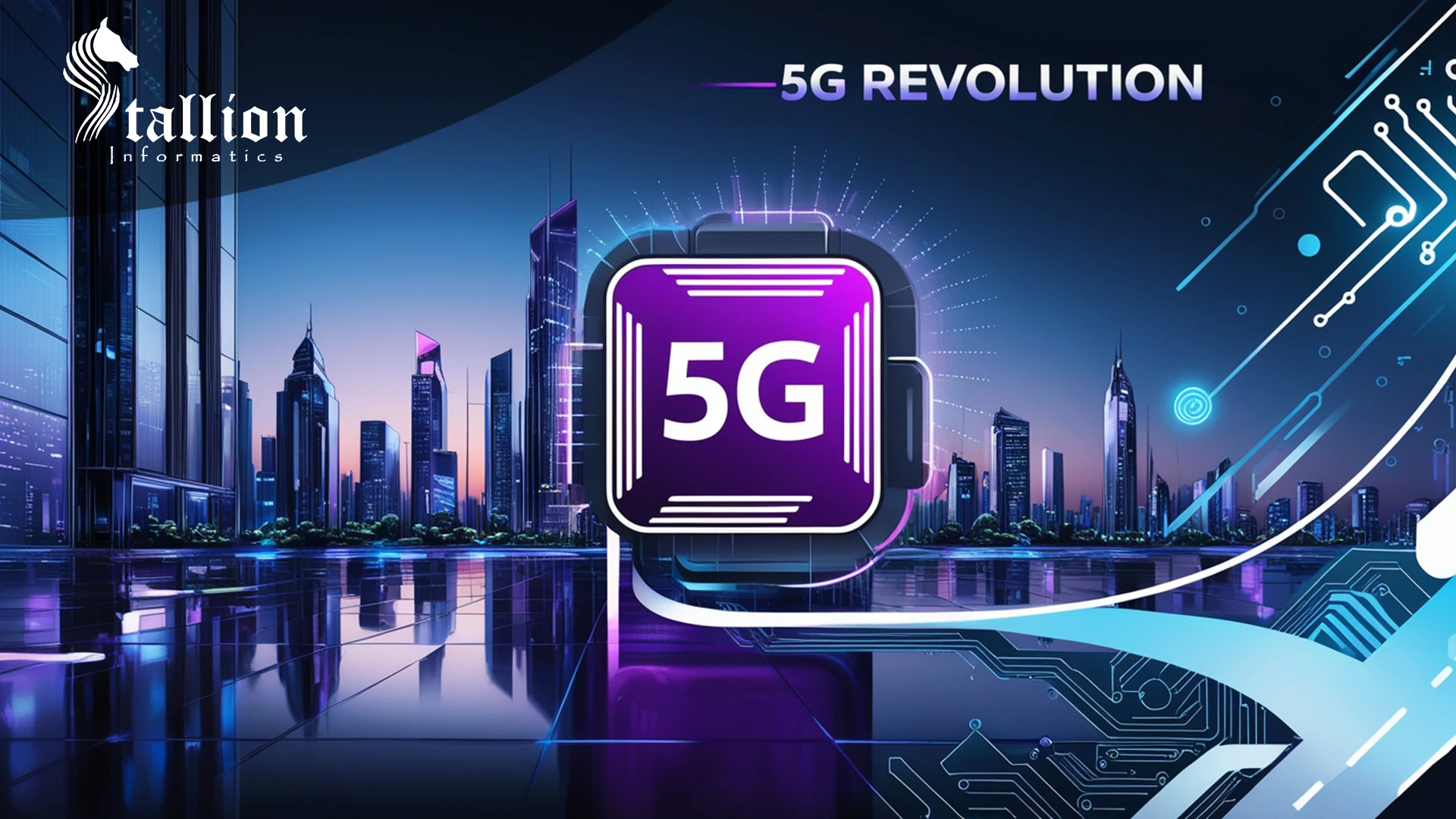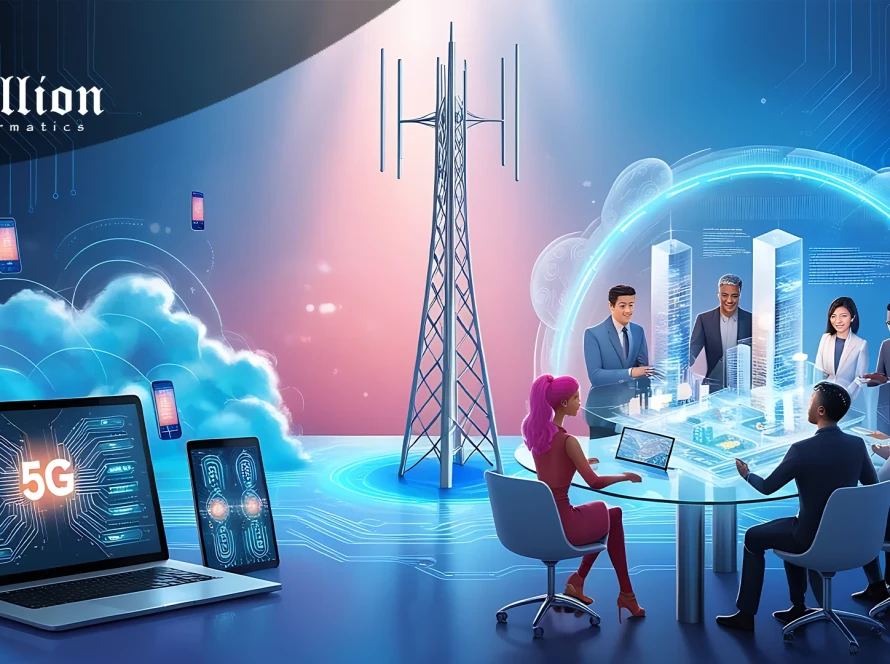Understanding 5G impact IT industry is essential as this groundbreaking technology transforms the way businesses operate and communicate. With faster data speeds, reduced latency, and enhanced network capabilities, 5G is revolutionizing the IT sector. As the demand for higher bandwidth and reliable connectivity continues to grow, its influence on businesses, individuals, and devices is reshaping the technological landscape. In this blog, we explore how 5G is shaping the future of the IT industry.
Understanding 5G: What It Is and How It Works
5G, the fifth generation of mobile network technology, is a significant leap forward from its predecessors (4G and 3G). It offers much faster speeds, higher bandwidth, and lower latency, which improves overall network performance.
- Key Features of 5G:
- Ultra-fast speeds: 5G can achieve speeds up to 100 times faster than 4G.
- Low latency: Latency is reduced to a few milliseconds, enabling real-time data transfer.
- Massive connectivity: 5G can support up to a million devices per square kilometer, making it ideal for IoT devices.
These characteristics make 5G a transformative technology, especially for industries heavily reliant on high-speed internet and low latency, such as healthcare, transportation, and smart cities.
Understanding 5G Impact IT Industry: Key Transformations
As 5G networks roll out globally, businesses and IT companies are exploring how this technology can enhance their operations. Here are some of the most significant impacts of 5G on the IT industry:
1. Enhanced Network Reliability and Speed
The introduction of 5G allows IT companies to provide faster and more reliable connectivity solutions. With speeds that far surpass current 4G LTE capabilities, businesses can experience more seamless cloud computing, video conferencing, and data transfers.
- Impact: Companies can leverage 5G for better remote work experiences, faster downloads, and uninterrupted connectivity, crucial for IT infrastructure that depends on constant data flow.
2. Enabling IoT Expansion
The low latency and high connectivity of 5G are essential for the growth of the Internet of Things (IoT). IoT devices, ranging from smart home appliances to wearable health devices, require continuous, high-speed communication between devices and servers.
- Impact: With 5G, IT companies can develop more sophisticated IoT systems that work efficiently in real time, making IoT solutions viable on a large scale. Industries like manufacturing and healthcare will especially benefit from this innovation.
3. Transforming Cloud Computing and Edge Computing
5G will improve the capabilities of cloud computing and edge computing by enabling faster, more efficient data processing. IT companies can use 5G to enhance cloud services, reducing the need for on-site servers and data centers.
- Impact: With cloud and edge computing benefiting from 5G, businesses can offload processing to the cloud with lower latency and higher speeds, making real-time analytics and decision-making more feasible.
4. Automation and Smart Technologies
As 5G allows for faster communication, automation technologies such as AI and robotics will become more integrated into IT operations. Industries like manufacturing, logistics, and agriculture will see significant improvements in their automation processes.
- Impact: IT companies will see an increased demand for AI and automation solutions that rely on real-time data and quick decision-making capabilities enabled by 5G.
5. Virtual and Augmented Reality (VR/AR) Advancements
5G’s high bandwidth and low latency open the door for significant advancements in virtual reality (VR) and augmented reality (AR) applications. These technologies require fast, stable internet to provide immersive and interactive experiences.
- Impact: For IT companies, 5G enables smoother AR and VR applications for sectors such as education, healthcare, and entertainment. The demand for VR/AR software and hardware will surge, benefiting businesses that specialize in these areas.
Challenges in Implementing 5G in the IT Industry
While the benefits of 5G are clear, the transition to this new technology comes with its own set of challenges:
- Infrastructure Costs: Upgrading to 5G networks requires significant investment in new infrastructure, such as 5G towers and antennas.
- Security Concerns: As more devices are connected via 5G, the risk of cyberattacks increases. IT companies will need to invest in cybersecurity to protect their systems.
- Regulatory and Spectrum Issues: Governments must allocate sufficient spectrum for 5G networks, which requires coordination and regulatory compliance.
Conclusion: The Future of 5G in the IT Industry
As 5G continues to roll out across the globe, it is clear that this technology will have a profound impact on the IT industry. From improving connectivity and expanding IoT capabilities to revolutionizing cloud computing and enabling automation, 5G is poised to reshape how businesses and consumers interact with technology.
The full potential of 5G in the IT industry is only beginning to be realized, and as the infrastructure matures, we can expect even more innovative solutions and applications to emerge. IT companies that embrace 5G now will be well-positioned to lead in the future of digital transformation.



